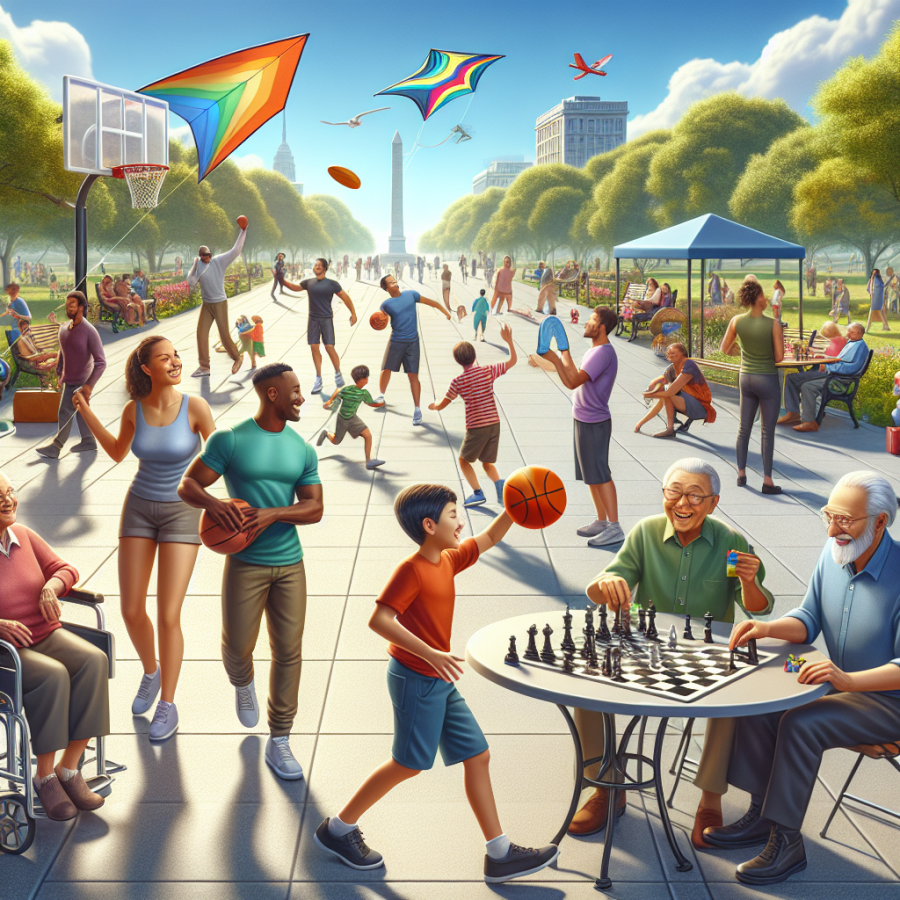Journey into the Fascinating Realm of Leisurely Gaming Activities
Leisurely gaming is not just a pastime, but a captivating world that offers unlimited avenues for creative engagement, personal growth, and camaraderie, as it has evolved vastly in the digital age. While some recreational games have recognized and dedicated platforms, others take place in immersive virtual worlds, each encouraging players to explore, strategize, and bond together. This article will delve into the depth of various aspects of leisurely gaming activities.
The first foray into this enchanting domain often begins with board games, which are recognized as a classic staple of recreational gaming. Board games invite players to engage in strategic problem-solving, designed to challenge the mind while maintaining a relaxed atmosphere. From timeless classics such as chess and scrabble to innovative newer entries like Ticket to Ride and Settlers of Catan, board games provide brilliant opportunities to build skills and competencies in a leisurely setting.
In addition to board games, role-playing games (RPGs) offer another enriching facet of the leisure gaming world. These games push the envelope of creative expression and strategic thinking. Participants assume the roles of characters in a fictitious setting, propelled by structured rules and narratives. RPGs such as Dungeons & Dragons have evolved into global phenomena, sparking countless spin-offs and adaptations. The emotional engagement and cooperation amongst all players play a significant role in the popularity of RPGs.
Card games, another mainstay of recreational gaming, vary widely in complexity and style. There are games which rely on chance, such as UNO or Cards Against Humanity, and others which require a mix of skill and strategy, like poker or bridge. Card games offer a flexible format adaptable to different group sizes and environments, making them a favored choice for a leisurely get-together.
Video games, the center of current gaming culture, have taken recreational gaming to an entirely different level. They offer players an interactive, often immersive experience, boosted by advancements in technology. Ranging from lighthearted Nintendo classics to expansive multiplayer universes in games like World of Warcraft, video games provide diverse experiences for a broad range of players. Casual mobile games, like Candy Crush and Angry Birds, have also found a place in the gaming sphere, catering to those seeking short bursts of entertainment.
Puzzles, another important constituent of leisure gaming, provide challenges that stimulate cognitive functions, often offering relaxing and therapeutic benefits. Crosswords, Sudoku, and jigsaw puzzles are popular choices, boosting memory and problem-solving skills.
Read also:
Exploring the Many Benefits of Yoga on Body and Mind
How Recreational Games Impact Our Downtime and Social Connections
Recreational games have been instrumental in shaping our leisure time and the way we interact with society. Be it video games, board games, or outdoor sports, these enjoyable activities have an incredible impact on our downtime and social connections.
One pivotal way recreational games impact our downtime is through the rejuvenation they provide. Engaging in a spirited game is a refreshing break from our daily tasks and work-related stress. After spending a busy day, delving into an adventurous video game or a challenging board game can be an excellent method of unwinding and rejuvenating energy. Playing games also stimulates the mind by challenging the brain's creativity, strategy, and problem-solving abilities.
Moreover, recreational games have been found to boost mood and reduce anxiety. Mental health benefits are often associated with leisure activities like games. Studies show that people who regularly partake in recreational games have better stress management skills. Video games can also help to foster positive emotions and manage mood swings. Since they don't require any energy, these games are a popular choice for relaxation.
Another significant impact of recreational games is seen in the realm of social connections. Games often bring people to play, interact, and build healthy relationships. They foster a sense of community, regardless of whether it is a physical sports team or an online gaming community. The competitive nature of many games also encourages teamwork and cooperation, which are pivotal in building strong social interactions.
In the realm of digital games, massive multi-player online games (MMOs) and other cooperative games foster a sense of camaraderie, teamwork, and shared goals among players. These games offer virtual spaces where players can meet, forge alliances, and form lasting friendships not just within their locality, but also across international borders. Not only does this enhance interpersonal skills, it also exposes players to diverse cultures and broadens their global perspective.
Board games, on the other hand, encourage face-to-face interaction. Regardless of age, playing board games can enable individuals to bond with family and friends while promoting critical thinking skills. These games can often stimulate conversation, create fun memories, and also foster a sense of friendly competition.
It’s also worth mentioning that recreational games can be instrumental in building and maintaining connections in professional settings. Using games as a part of team-building exercises can improve communication, increase collaboration, and boost morale amongst co-workers.
Overall, the impacts of recreational games on our downtime and social connections are profound.




